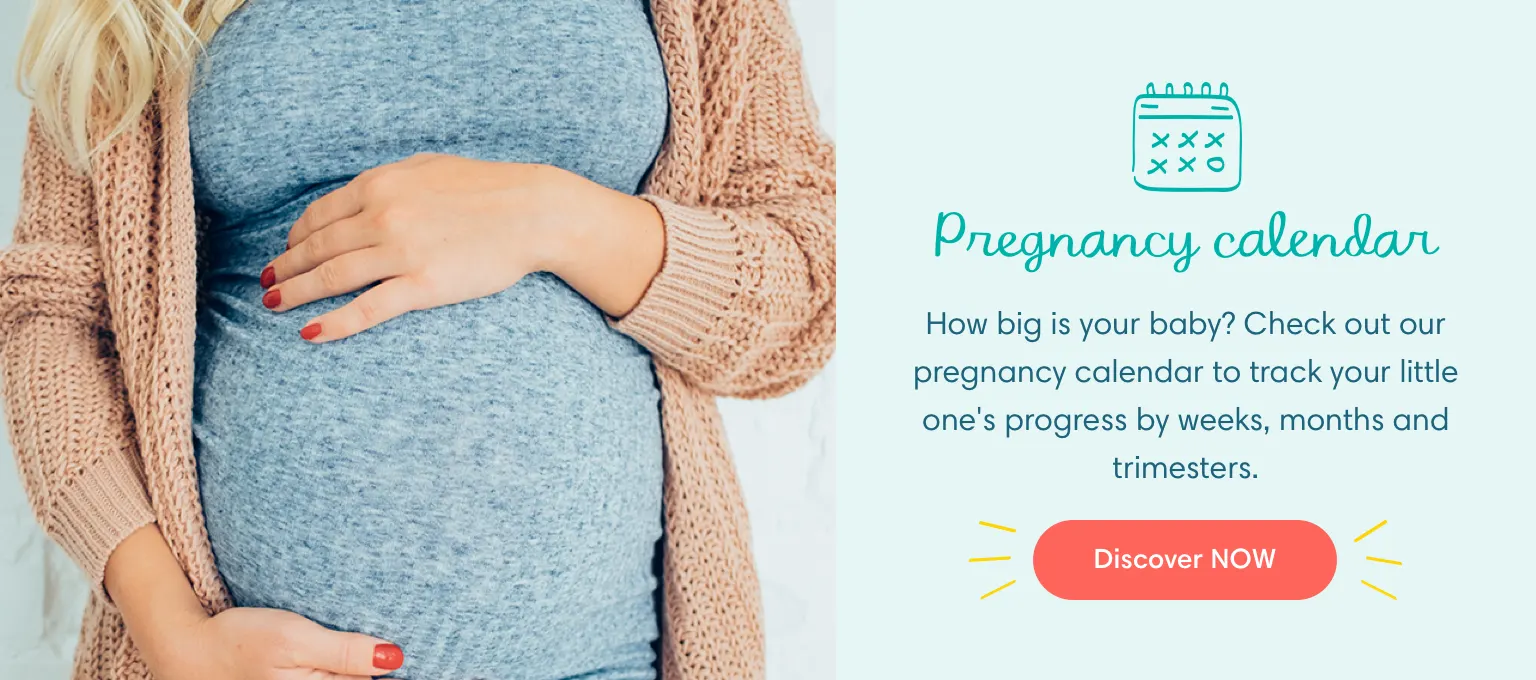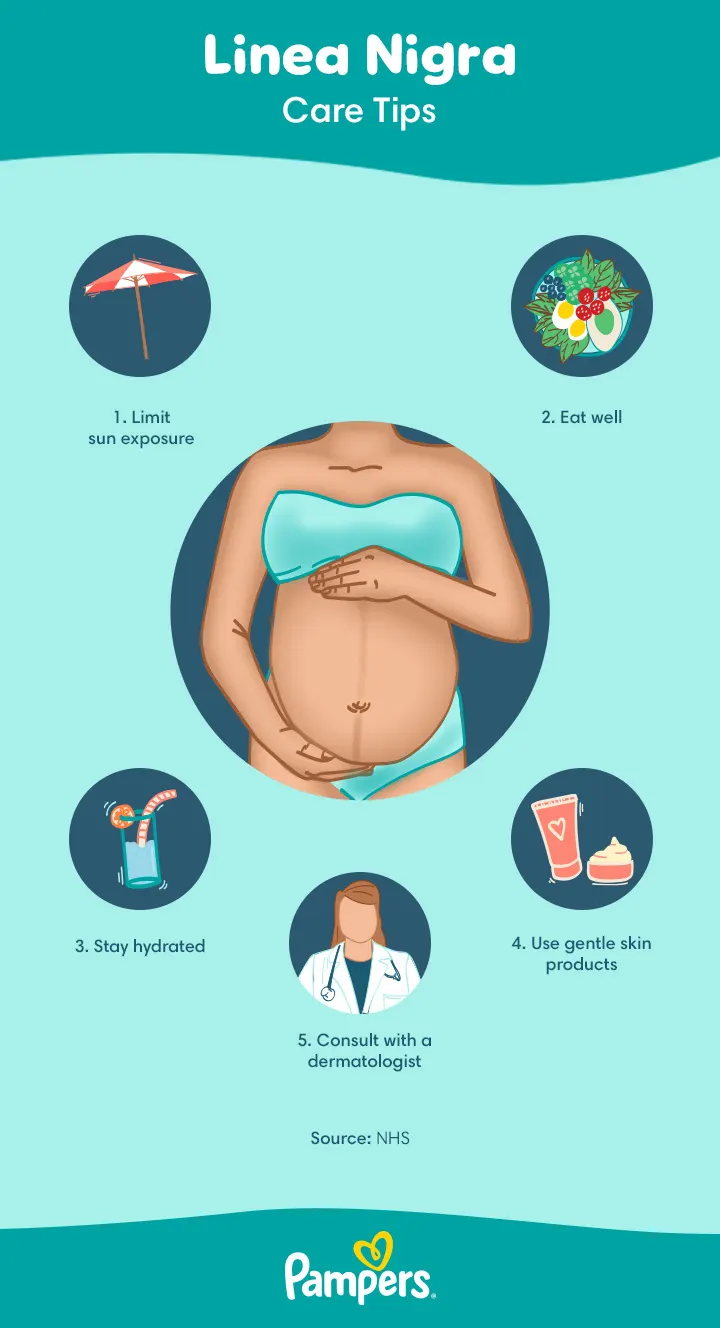
Linea Nigra: What It Is and When Does It Appear?
During pregnancy, the body goes through many changes, some expected and some unexpected. One change that can occur is the appearance of the linea nigra, a dark line down the stomach. In this article, we will explore what causes linea nigra in pregnancy, when it appears and disappears, and whether it can be prevented or treated.
What Is a Linea Nigra?
One common and completely harmless skin change that occurs during pregnancy is the appearance of the linea nigra, a dark line down the stomach. The term ‘linea nigra’ translates to ‘black line’ in Latin. It generally runs in a vertical line from your pubic area to your belly button when you’re pregnant, and may also extend above the belly button. The darkness of the linea nigra may vary depending on your complexion and can appear darker as your pregnancy progresses.
What Causes Linea Nigra in Pregnancy?
Linea nigra is thought to be attributed to the hormonal changes occurring in the body during pregnancy. Specifically, a rise in the melanocyte-stimulating hormone, which may increase melanin, the pigment that gives your skin, hair, and eyes their colour. This increase in melanin may cause the linea alba, a faint ‘white’ line that runs from your belly button to your pubic bone and is present before pregnancy, to darken into the linea nigra. This increase in hormones during pregnancy is also the reason for melasma (also known as the mask of pregnancy) and the darkening of other areas of your body, such as your areolas or genital area.
Pregnancy Weight Gain Calculator
Fill out your details:
When Does the Linea Nigra Appear?
A common question during pregnancy is “When does linea nigra show up?” The timing of the linea nigra varies among individuals, but it typically darkens as your pregnancy progresses and generally becomes more visible during the second trimester of pregnancy. We all have a linea alba, a thin line of connective tissues running down our abdomen; however, it’s generally colourless until pregnancy. Hormonal increases during pregnancy lead to the darkening of this line down the tummy, changing it from linea alba into the linea nigra as the pregnancy progresses.
So, does everyone get linea nigra? Whilst it’s a common occurrence in pregnant people, this doesn’t mean everyone will have a noticeable linea nigra. It may also be more evident in people with darker skin tones.
When Does Linea Nigra Go Away?
For many pregnant people, the appearance of linea nigra is a temporary change. This pregnant belly line typically fades on its own within a few months after childbirth as hormone levels return to their pre-pregnancy state. However, the time it takes for the line to completely disappear can vary from one person to another. Some may notice it fading shortly after delivery, while for others, it may take longer.
Can You Avoid Getting a Linea Nigra Line On Your Stomach?
It’s not entirely possible to prevent the development of a linea nigra, the dark line that can appear on the abdomen during pregnancy. The line appears due to hormonal changes in pregnancy and the body’s increased melanin production. However, this belly line in pregnancy will likely fade after childbirth – so hold on just a little longer and remember your body is doing wonderful things right now.
Linea Nigra Care Tips
There are no specific treatments required for the linea nigra line or other skin conditions during pregnancy, such as melasma or hyperpigmentation. However, there are a few ways you can help reduce further pigmentation of the skin and help maintain your skin health in general during pregnancy.
It’s important to remember that linea nigra is a natural and common part of pregnancy for many people. If you have any concerns, contact your GP or a dermatologist.
FAQS AT A GLANCE
The dark line on your stomach during pregnancy, known as the linea nigra, typically appears in the second trimester, although the timing can vary.
The Bottom Line
Linea nigra is a natural part of pregnancy for many people, resulting from the hormonal changes. It’s neither harmful to you nor your baby and usually fades after childbirth. Understanding this and other pregnancy symptoms and bodily changes during pregnancy can help you prepare for and embrace the transformations your body undergoes. These changes are signs of the incredible process of bringing new life into the world.
Before your little one arrives, why not download the Pampers Club app for discounts on all those future diaper purchases.
Read more about Pregnancy
Join Pampers Club and get:
















